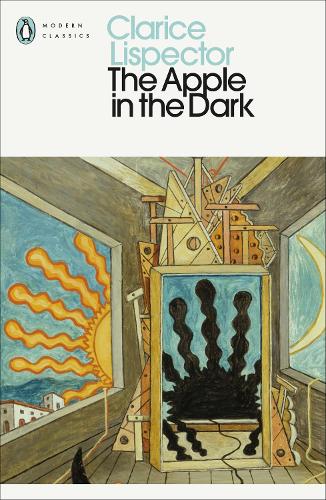
The Apple in the Dark
(Paperback)
Publishing Details
The Apple in the Dark
By (Author) Clarice Lispector
Translated by Benjamin Moser
Afterword by Paulo Gurgel Valente
Penguin Books Ltd
Penguin Classics
6th February 2024
5th October 2023
United Kingdom
Classifications
General
Fiction
Metaphysical / philosophical fiction
Narrative theme: interior life / psychological fiction
Fiction in translation
869.342
Physical Properties
Paperback
400
Width 128mm, Height 199mm, Spine 23mm
296g
Description
'The best one', as Clarice herself described it - her great mystical masterpiece In the mistaken belief that he has killed his wife, Martim flees the city and arrives, in a state of both fear and wonder, at a remote ranch. There, he will have to remake himself, emerging, from the beast-like state in which his crime has plunged him, to the fullness of a reinvented humanity. Along the way, he will mark the lives of the two women who run the ranch, brambly, authoritarian Vit ria and her weepy cousin Ermelinda. But the real drama is interior- Clarice Lispector's most wrenching, and most intoxicating, exploration of how a man becomes a human - and of how language can transform a life into a destiny. A highly sculpted, metaphysical book whose mysteries and allegories glow with a scintillating light, Apple in the Dark is a masterpiece by 'one of the hidden geniuses of the twentieth century' (Colm T ibin). Translated by Benjamin Moser.
Reviews
Lispector - like Beckett, or, to a degree, Kafka - strips language to the bone, in search of some kind of metaphysical core or nucleus. Her laconic, almost aphoristic syntax is, at times, full of a brutal sense of humor and at times disquieting. Lispector is one of those rare writers who can simply tell a story -- Valeria Luiselli * Publishers Weekly *
Lispector is the premier Latin American woman prose writer of this century * The New York Times Book Review *
Lispector-like Beckett, or, to a degree, Kafka-strips language to the bone, in search of some kind of metaphysical core or nucleus. Her laconic, almost aphoristic syntax is, at times, full of a brutal sense of humor and at times disquieting. Lispector is one of those rare writers who can simply tell a story -- Valeria Luiselli * Publishers Weekly *
Clarice Lispector left behind an astounding body of work that has no real corollary inside literature or outside it -- Rachel Kushner * Bookforum *
Her images dazzle even when her meaning is most obscure, and when she is writing of what she despises she is lucidity itself * TLS *
Brilliant and unclassifiable: glamorous, cultured, moody, Lispector is an emblematic twentieth-century artist who belongs in the same pantheon as Kafka and Joyce -- Edmund White
One of the true originals of Latin American literature -- Terrence Rafferty * The New York Times Book Review *
A genius on the level of Nabokov -- Jeff VanderMeer * Slate *
Sphinx, sorceress, sacred monster. The revival of the hypnotic Clarice Lispector has been one of the true literary events of the twenty-first century -- Parul Seghal * The New York Times *
I felt physically jolted by genius -- Katherine Boo
Utterly original and brilliant, haunting and disturbing -- Colm Tibn
Brilliant, demanding, tempestuous, relentless, exultant -- Martin Riker * The New York Times *
It's not enough to say that Lispector bends language or uses words in new ways. Plenty of modernists do that. No one else writes prose this rich -- Lily Meyer * NPR *
Author Bio
Clarice Lispector was born in Ukraine in 1920. In the aftermath of World War I and the Russian Civil War, her family fled to Brazil, where she arrived when she was a little more than a year old. She published her first novel, Near to the Wild Heart, in 1943, when she was just twenty-three, and died in 1977, shortly after the publication of her final novel, The Hour of the Star.
